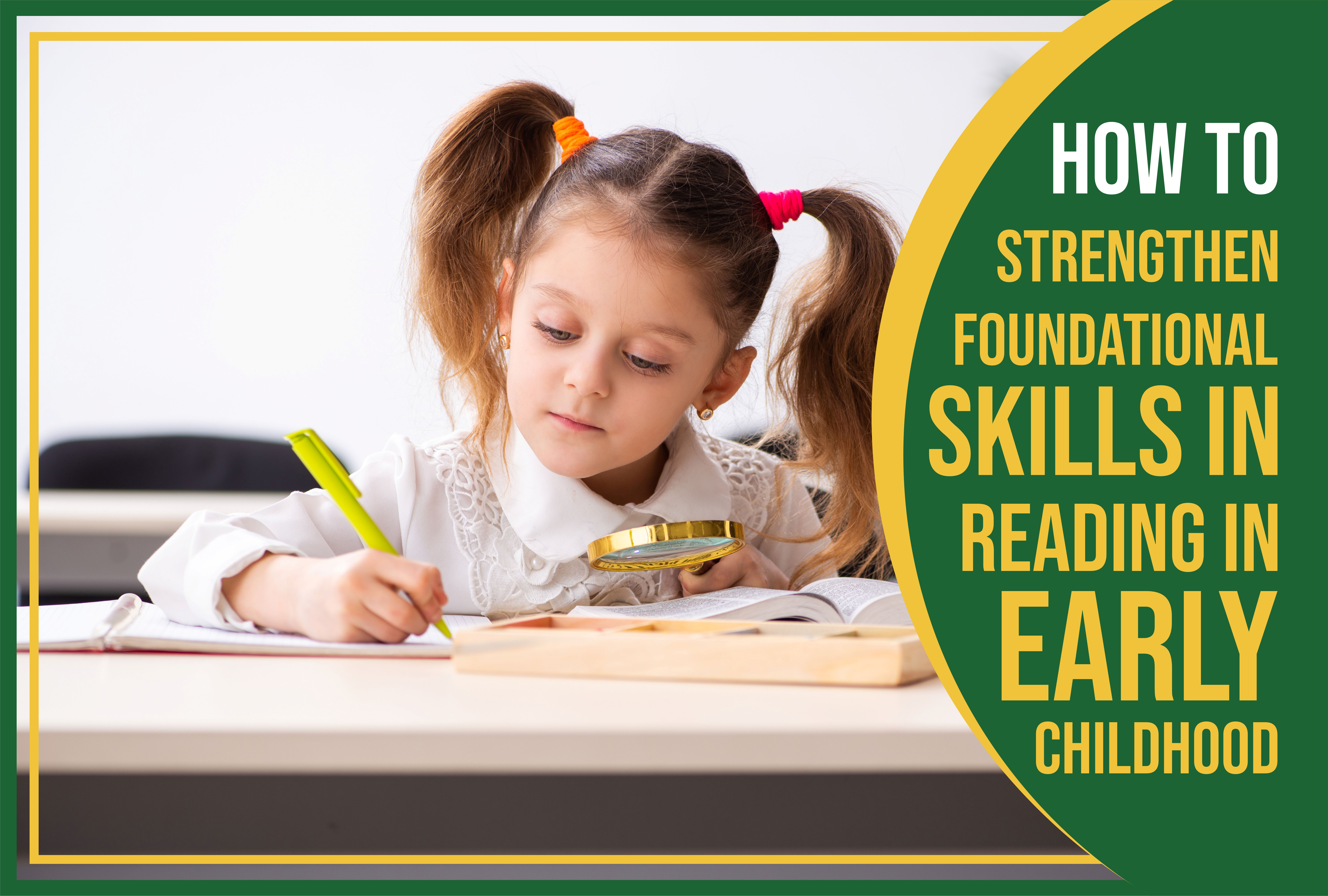How to Strengthen Foundational Skills in Reading in Early Childhood
As parents, we desire what's best for our children, including providing them with anything needed to give them the best chance for success in school and life. Because reading is foundational for all other areas of learning, it's only imperative to ensure that our kids have a strong foundation in reading skills.
The ability to read is the key that unlocks so many doors and provides opportunities for growth and success. There are five foundational skills in reading that are essential for reading success: phonemic awareness, phonics, fluency, vocabulary, and comprehension. Phonemic awareness is the understanding that spoken language is made up of individual sounds or phonemes. Phonics is the ability to match those individual sounds to the written word. Fluency is the ability to read smoothly with proper pacing and expression. Vocabulary is the understanding and use of words. And finally, comprehension is the ability to understand and remember what has been read.
While a child's teacher will provide instruction in all of these areas, there are also things that parents can do at home to support and reinforce these skills. Below are nine tips on how to strengthen foundational skills in reading with your child at home:
1. Read aloud to your child every day
This is perhaps the most important thing you can do to support your child's reading development. When you read aloud, your child hears proper pronunciation, pacing, and inflection, modeling fluency. You can also point out words that they may not be familiar with to help build their vocabulary. And finally, by discussing the story with them afterward, you are helping them develop comprehension skills.
2. Make it a game
Who says learning can't be fun? Many games and activities are specifically designed to help kids develop foundational reading skills. These can be found online or at your local toy store. Look for ones that focus on the skill you would like to work on, such as phonemic awareness or phonics.
3. Create a print-rich environment
Provide your child with plenty of opportunities to see print everywhere in your home. Hang posters with the alphabet or numbers around the house. Leave books out where they can easily be reached. Put up signs with words on them in the bathroom, kitchen, and other house rooms. By constantly seeing print, your child will begin to connect the written word and the spoken word.
4. Read, read, and read some more!
The best way for your child to become a better reader is to practice, practice, practice. So encourage them to read as much as possible. Find books that they are interested in and at their reading level. Let them see you reading, too. The more they read, the better they will become at it.
5. Take turns reading
When reading with your child, take turns reading pages or sections. This will help them develop their fluency skills. As they become more comfortable with reading, they will be able to read bigger chunks for longer periods.
6. Make it a habit
Try to establish a daily routine involving reading. Carve out some time each day for reading together. Perhaps right before bedtime would work well. Or maybe after breakfast in the morning. Choose a time that works best for you and your family and stick to it as much as possible.
7. Visit the library
The library is a great resource for finding books at your child's level. It's also a great place to find games and activities related to reading. And best of all, it's free! So take advantage of all that your local library has to offer.
8. Talk about what you're reading
While reading with your child, stop periodically to talk about what you've read. Ask them questions about the characters, the plot, and the setting. This will help them develop their comprehension skills.
9. Encourage writing
Writing is another great way to reinforce foundational reading skills. Help your child write down words they are struggling with. Encourage them to write stories of their own. And have them practice writing letters and other shapes. The more they write, the better they will become at reading and understanding written language.
Strengthening your child's foundational skills in reading will take time and patience. But it is definitely worth the effort. Using the tips above can help your child become a better reader and set them up for success in school and beyond.
At Mrs. Myers' Learning Lab, we specialize in fun, interactive classes for developing readers. Our engaging process leads to students gaining self-confidence, interpersonal skills, and a love for learning that extends far beyond the classroom. Visit us to learn more!





